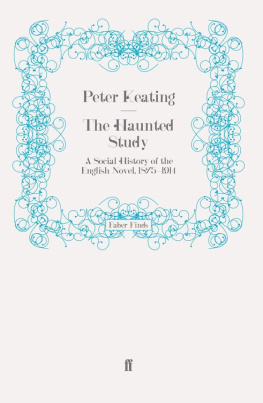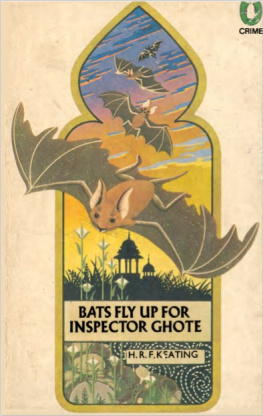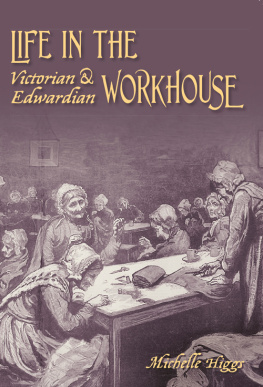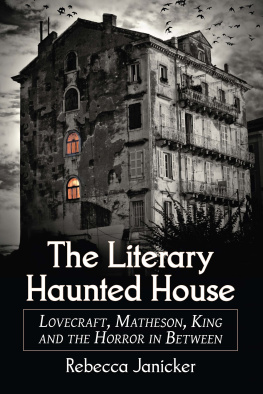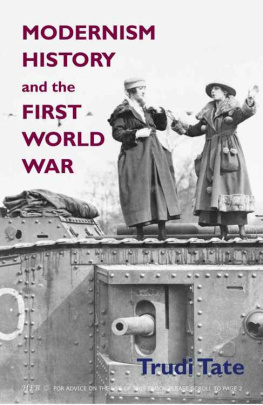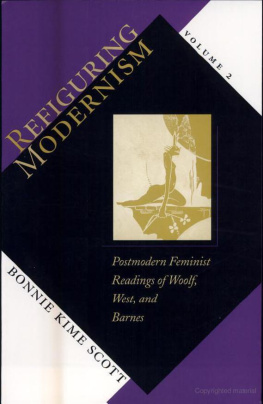No one has the faintest conception of what Im trying for, he said to me, and not many have read three pages that Ive written; but I must dine with them first theyll find out why when theyve time. It was rather rude justice perhaps; but the fatigue had the merit of being a new sort, while the phantasmagoric town was probably after all less of a battlefield than the haunted study.
Whoever seriously occupies himself with literature will soon perceive its vital connexions with other agencies, Matthew Arnold observed in his preface to MixedEssays (1879). That perception, regarded by Arnold as axiomatic, has not seemed so obviously true to many of the literary critics and theorists who have led the way in the academic professionalisation of literary studies in the twentieth century, even though in other respects they have often looked back to Arnold as an inspirational guide. The main trend of twentieth-century literary criticism has been to establish itself as an autonomous discipline, cut off from and independent of other agencies: in that process literatures connections with social history have been particularly, and surprisingly, neglected.
By the end of the nineteenth century there was already a sharp division in academic approaches to the study of English literature. Historians formed the dominant group. They stressed the importance of knowledge, information, facts, chronology, biography, social and political context. In contrast, literary critics scorned such fact-gathering as irrelevant to the students true task which was to develop taste, sensibility, fine discrimination. There was no intrinsic reason why these two approaches should have been kept apart from each other, but social pressures on the academic study of English literature a topic examined in the final chapter of the present book gave priority to the critics. Their victory over the historians was swift and devastatingly complete. Literary history was not quite annihilated, but its survival (along with that of textual scholarship) was tolerated only grudgingly. Most unrepentant literary historians turned to the monograph. Others found in Marxism a strong ideological resistance to the separation of literature and history. Whether this situation will be changed substantially by the recent growth of interest in literary theory is still uncertain. At present, several of literary theorys proliferating strands are even more aggressively ahistorical than the literary criticism they are displacing, though the position of theoretical Marxism has become strengthened, and some branches of feminism have been attracted to history as a means of retrieving from obscurity those women writers for whom literary criticism could find no place. Allowing for exceptions such as these, the study of literature in the present century has been, in effect, de-historicised.
Literary criticisms most complete victory was over the wide-ranging surveys compiled by late Victorian literary historians. Even now, anyone needing to consult a history of nineteenth-century literature that offers reliable information on the range and variety of writers working at any given time (and, of course, indications of the ways in which those writers and their work are related) is still likely to turn either to the standard books by such turn-of- the-century historians as George Saintsbury, Oliver Elton, A. W. Ward, Hugh Walker, and Ernest Baker, or to a small number of more recently published histories, the method of which varies little from that of the earlier models. What makes the continuing unadventurousness of this kind of literary history so surprising is that while the British contribution to literary theory over the past twenty or so years has been slight, the achievements of social historians in Britain often inspired by Marxism but by no means exclusively so have been impressive. Remarkably little attention has been paid by students of literature to these developments in social history and other related areas of research such as historical sociology, even though it is here that many of literatures connexions with other agencies are most significantly to be found.
The structuring of the seven chapters that make up the present book requires a brief explanation. Each chapter is centred on one topic or theme and explores various aspects of it; in each chapter, literature and history are interrelated, though in varying ways and proportions according to the nature of the material being presented; all of the chapters are organised on a chronological basis, and each of them covers the whole period. In addition, the opening and closing chapters are, as their titles indicate, connected to each other in a different manner. The first chapter is primarily descriptive. Taking as a starting point Trollopes decision in 1875 to write his autobiography , it outlines the changing business of literature in the period, and focuses on the social and economic position of novelists. In the final chapter, much of the same material is re-examined, though interpretatively rather than descriptively, and with the main focus on the social and economic position of readers. The book can therefore be read as either a continuous narrative or as a series of interrelated narratives, though the full argument of the book is intended to be cumulative. I felt that only with this kind of method would it be possible to attempt to do justice to the many different ways in which literature and history are inextricably connected, and, through an accumulation of those demonstrated connections, offer an historical explanation of the emergence of modernist fiction in Britain.
I am conscious of owing an immense debt to the social, economic, cultural and literary historians who have written on various aspects of this period: without their work it would not have been possible for me to adopt the kind of interdisciplinary approach that I have. This debt I have tried to acknowledge in the notes which are used not only to identify sources but also to indicate further reading on particular topics: the alternative a very substantial and unwieldy secondary bibliography would, I felt, be of doubtful value to the reader. The notes are not intended to be complete, but even so, in a book that encroaches on so many different academic territories there are bound to be omissions and over-simplifications which are accountable to me. In the notes I have made few references to works of literary criticism and theory. This is partly due to the type of material I am dealing with, but more substantially to the historical approach I have taken to a number of issues which are frequently discussed or mentioned by critics and theorists. To those writers whose view of literature is irredeemably ahistorical my findings are unlikely to matter one way or another: to those with an interest in history, it will, I hope, be clear where the connections I am making are complementary to theirs and where there is disagreement. To have been constantly taking up such issues with individual critics would have changed into something entirely different the book I wanted to write.
I would like to express my gratitude to the Society of Authors and the British Library for permission to quote from material in the archives of the Society of Authors; the Travel and Research Committee of Edinburgh University for financial help; the Hunt ington Library, San Marino, California, for appointing me to a visiting fellowship in the summer of 1978; the National Library of Scotland, Edinburgh, where so much of the research for this book was carried out; and, above all, to Valerie Shaw for her unfailing help and encouragement in all sorts of ways.
PeterKeating
I suppose things have changed? she said.
Never was such an age of transition.

